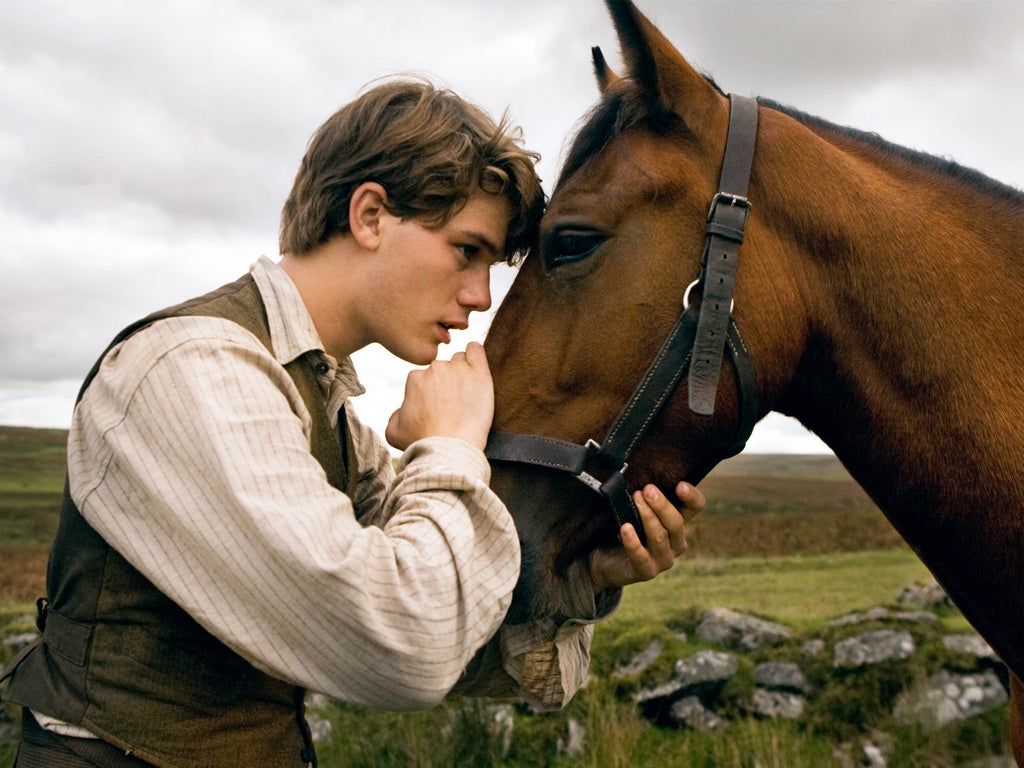Heroic animals finally gain the recognition they deserve
Steven Spielberg's 'War Horse' features fearless steeds. The IoS's John Houghton-Brown and Omar Shahid pay tribute to other brave beasts

The memorial is touchingly simple. Dedicated to the millions of animals who died during the First World War, it reads: "Knowing nothing of the cause, looking forward to no final victory, filled only with love, faith and loyalty, they endured much and died for us." Attached to the front of a North London RSPCA clinic, the plaque is one of the few public tributes to the millions of animals killed on military service between 1914 and 1918.
Until now, their sacrifice has been largely unsung. That will change dramatically this month with the release of Steven Spielberg's highly anticipated Hollywood blockbuster War Horse. The film, which has already received critical acclaim in the US, has its premiere in London this week.
Adapted from Michael Morpurgo's novel of the same name and the hit National Theatre production, it recounts the fortunes of a horse requisitioned from a Devon farm for service with the British Army in France, working as a cavalry mount and later as a transport animal. The horse is forced to serve British and German forces in turn.
The film and Morpurgo's bestselling book have focused attention on the role of animals and the close bonds with the fighting men who cared for them. The real-life war horses suffered horribly: up to a million died on the western front from shell and gunfire, malnutrition and cold. Others, animals that received acclaim – such as Warrior, the personal mount of Winston Churchill's friend and comrade General Jack Seely – were more fortunate and survived the war, despite taking part in savage and bloody cavalry charges.
Stories such as that of Warrior prompted a clamour from the British public for the plight of the less fortunate animals to be improved. The RSPCA and the Army's own Veterinary Corps were moved to alleviate their suffering.
Despite many acts of bravery and stoicism by individual animals, only one – a homing pigeon called Cher Ami – was decorated during the Great War. The British homing pigeon, donated to the US Army, managed to carry a vital message to help save trapped US troops despite being shot, blinded in one eye and left with a foot hanging by a tendon.
It wasn't until the Second World War that animal bravery was formally recognised when the Dickin Medal was instituted by the PDSA animal charity. Dubbed the "animals' Victoria Cross" and inscribed with the words "they also served", it is awarded to animals who display "conspicuous gallantry or devotion to duty" while on military service.
It was awarded to a pigeon called White Vision, above right, which safely delivered a message that saved the lives of a ditched aircrew in 1943. More pigeons have been the recipient of the award than any other animal – a total of 32 have been recognised.
Dogs are the next most decorated creature: a total of 27 have been awarded the medal. Recipients include Buster, a springer spaniel, below left, who located a weapons arsenal in Iraq in 2003 while serving with the Royal Army Veterinary Corps, thus curbing the advance of insurgents attacking British troops.
Another was Treo, a black Labrador, also with the Royal Army Veterinary Corps, who located a "daisy chain" improvised explosive device, carefully concealed by the Taliban, in Afghanistan in 2008.
Among the first winners was Rip, below, a mixed-breed terrier, who, after being found in Poplar, east London, by an air raid warden in 1940, became the service's first search-and-rescue dog. He is credited with saving the lives of more than 100 people.
Only one cat has ever won the distinguished honour. Simon, the ship's cat on HMS Amethyst, above, was awarded the Dickin in 1949 for her role when the vessel came under heavy fire in the Yangtze River.
In 2001, the PDSA instituted a Gold Medal for animals who display valour in circumstances outside the military. Quickly dubbed the animals' George Cross, it has been awarded 18 times to police or companion dogs who have displayed courage.
Join our commenting forum
Join thought-provoking conversations, follow other Independent readers and see their replies
Comments
Bookmark popover
Removed from bookmarks